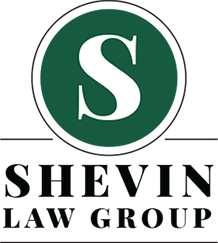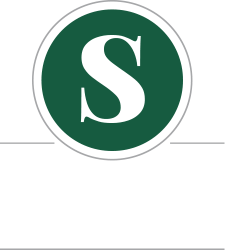Narcotics

Los Angeles Narcotics Defense Lawyers
A narcotics charge changes your life in the blink of an eye. You face the minimum potential of fines and a serious black mark on your record. Depending on the gravity of the offense, jail time is a real possibility. Narcotics charges may also have brought you into close enough association with other crimes to create further difficulties.
Furthermore, if there are two previous convictions on your record, you are subject to California’s “three strikes” law, wherein the third felony conviction means a minimum of 25 years behind bars and potentially life in prison. All of this is why it is imperative not go into this legal battle alone.
A Los Angeles narcotics defense lawyer from Shevin Law Group can lead the fight for your freedom, your record and your reputation. Call us today at (818) 918-5838 or contact us online.
Narcotics Violations & Penalties in California
Narcotics covers a wide area in the criminal code. At the top levels, a person can be charged with the selling and distribution of illegal drugs. If that activity is a part of a suspected criminal organization, racketeering charges could be included. There’s also the simple act of possessing illegal drugs. The gravity of the crime combined with the seriousness of the drug in question will determine the sentencing guidelines a California judge uses.
The state of California separates drugs into five different “schedules”. Schedule V covers the least serious ones with the lowest penalties. These are drugs that are often legal for someone with a prescription. Their addictive quality is low. Codeine is one example of what’s on Schedule V.
The drugs–and the penalties get gradually more serious as you escalate the schedule ladder. Schedule IV drugs (Xanax being an example) have noteworthy medicinal value, but are more likely to become addictive.
On the other extreme, Schedule I drugs are dangerously addictive and do not have recognized medicinal value. Cocaine and ecstasy would be examples here. Schedule II drugs–like amphetamines–may have some medicinal value. But it’s not likely and the addiction potential is high.
Between the two extremes is Schedule III, which includes steroids and testosterone. The California legal system will consider what schedule drug is under consideration, the quantity it possessed and whether the charge is buying, selling or possession when formulating charges and passing down sentencing for one who is convicted.
Narcotics Defenses in California
There are several viable defense strategies that can be used. Two that call for particular attention are to question the validity of the search and whether possession is truly proven.
Was the Search Legal?
The fact charges are brought means authorities almost certainly found the illegal drugs themselves. But did they do so in a legal way? We all have Fourth Amendment rights that protect us against illegal search and seizures. If the search was not legal, then any evidence obtained because of that search cannot be presented in court. And if the charge is drug possession and the prosecution can’t introduce the drugs…well, it doesn’t take too much imagination to see the case against the defendant sinking badly.
There are several ways a police officer can conduct a legal search. They can get the defendant’s permission to conduct the search. They can get a judge to issue a warrant. They can see evidence in plain sight–e.g., if illegal drugs are sitting on the passenger’s seat when the officer pulls someone over for speeding.
But if these are absent, then the search may well have been an illegal one. Furthermore ,even if the officer had a search warrant, he must have had probable cause to get the warrant. Was that even in effect? It’s the defense lawyer’s job to ask all of these questions and more–and to get any illegally obtained evidence eliminated from the record.
Was There Possession?
This might seem cut-and-dried, but it’s really not. It’s not enough to simply demonstrate the defendant was in possession of illegal drugs. It must also be shown that they knew the drugs were there, that it was an illegal substance and that it was present in usable amounts.
So, the police officer who searches someone’s home finds illegal drugs. Only the person insists that the drugs really belong to their roommate. The roommate says the opposite. Can it really be proven that either party possessed the drugs. It’s possible. But the burden of proof to do so is squarely on the prosecution and it’s not always an easy burden to meet.
Shevin Law Group is in the business of making sure prosecutors and police officers follow the letter of the law and we’ve spent thirty years launching rigorous defenses of our clients, defenses built on a detailed understanding of the law and a tenacious spirit that keeps us in the trenches and doing battle for the freedom and reputation of those we represent. Let us be in your corner.
Call us today at (818) 918-5838 or contact us online to set up an initial consultation.

-
“He cares about his clients, takes care of business, and always gets the best results.” - Steve N.
-
“The amount of experience, knowledge, and expertise in the criminal and cannabis field is incredible” - Harry A.
-
“He has always done a good job and gone the extra mile for me.” - Matt C





